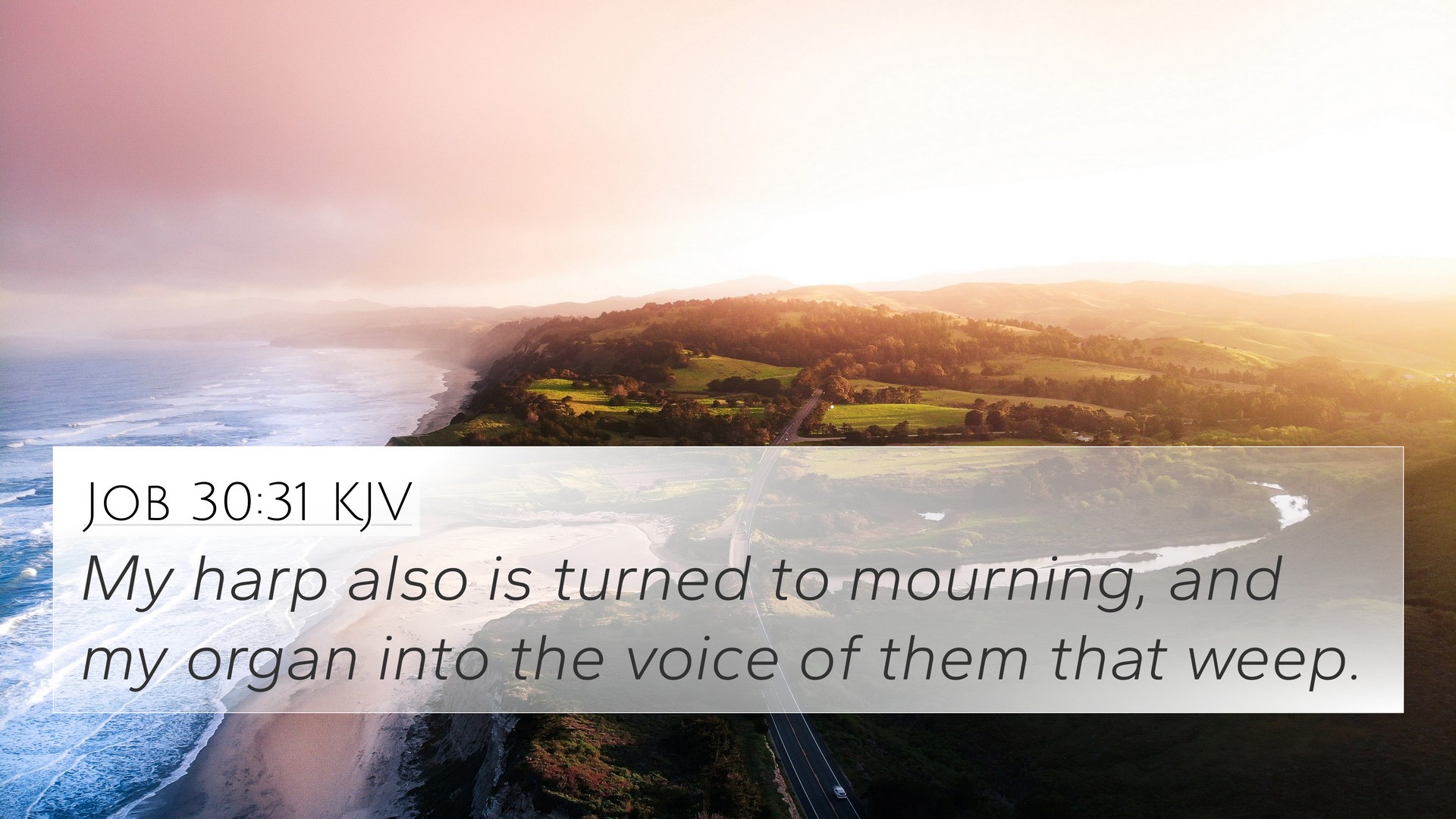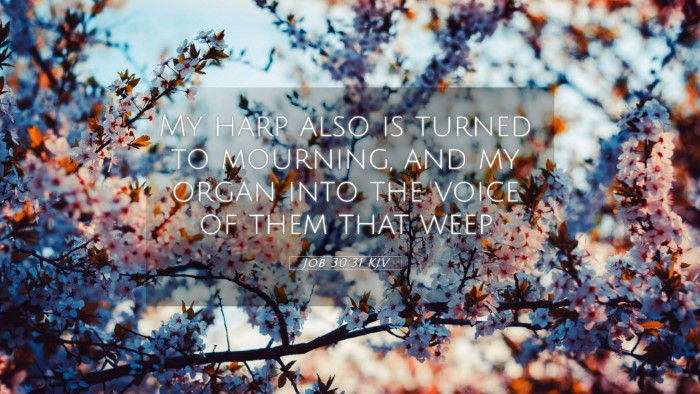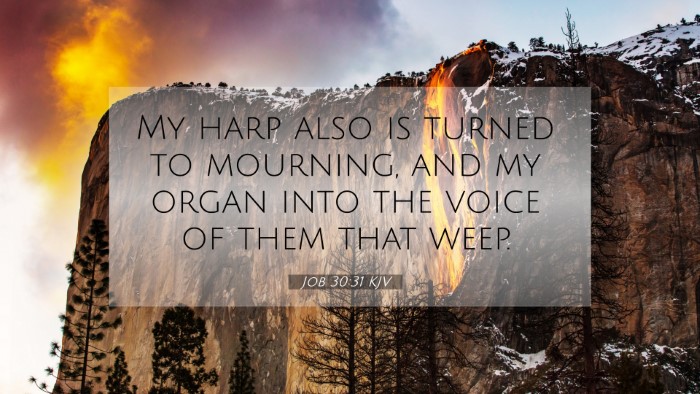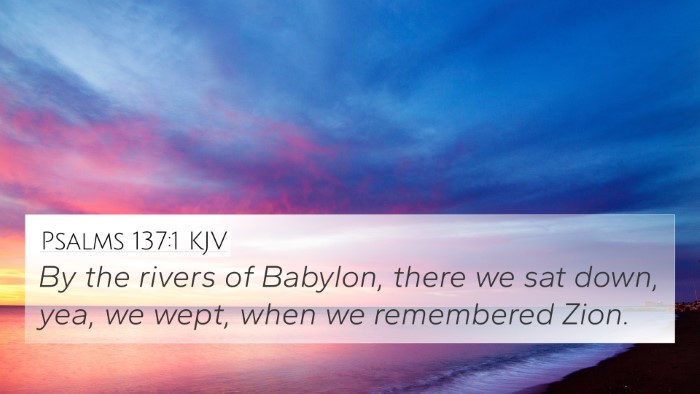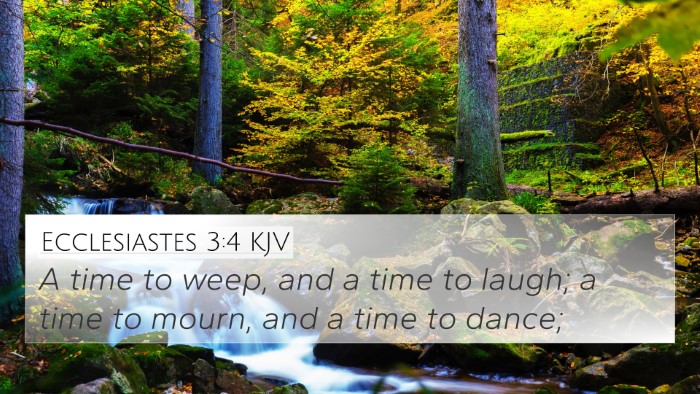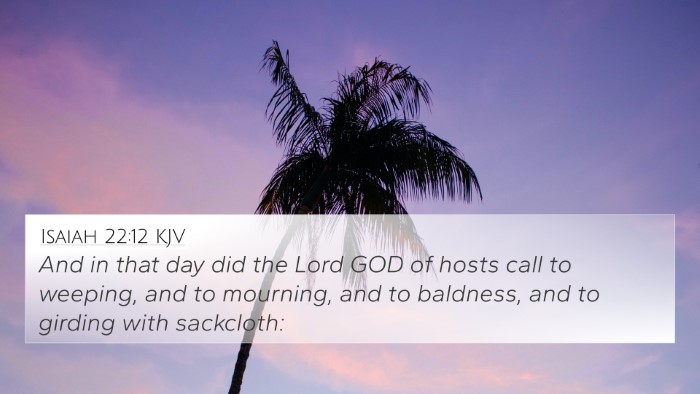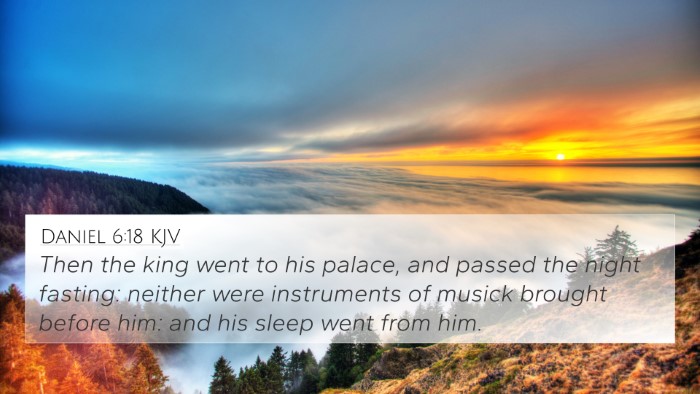Understanding Job 30:31
Verse: Job 30:31 - "My harp is turned to mourning, and my organ into the voice of them that weep."
This verse encapsulates the deep sorrow and despair Job feels as he reflects on his suffering and the change in his circumstances. It portrays a profound shift from joy and praise to lamentation and grief.
Commentary Insights
- Matthew Henry: Henry emphasizes Job's transition from a vibrant life filled with music (symbolizing joy) to an existence dominated by mourning. He interprets this as an expression of Job's heartbroken state, where the instruments of joy are now utilized to signal his anguish.
- Albert Barnes: Barnes notes that Job uses the imagery of musical instruments to illustrate his emotional state. The harp and organ, typically associated with celebration and hope, are now indicative of sorrow and deep mourning. This underscores the magnitude of Job's loss and suffering.
- Adam Clarke: Clarke expands on the idea of mourning present in music, stating how music can convey a wide range of emotions. In Job's case, the reminder of joy now feels like a painful echo of his current despair, emphasizing the extent of his transformation from former prosperity to current desolation.
Thematic Connections
Job 30:31 resonates with several overarching themes found in the Bible, such as suffering, lamentation, and the transformation of joy into grief. These concepts are essential in understanding the emotional and spiritual struggles faced by many biblical figures.
Related Bible Verses
- Psalms 30:11: "Thou hast turned for me my mourning into dancing: thou hast put off my sackcloth, and girded me with gladness." - A contrast to Job's situation, illustrating hope amid despair.
- Lamentations 5:15: "The joy of our heart is ceased; our dance is turned into mourning." - Similar thematic elements of grief in the face of loss.
- Isaiah 61:3: "To appoint unto them that mourn in Zion, to give unto them beauty for ashes, the oil of joy for mourning..." - A prophetic promise of restoration after sorrow.
- Matthew 5:4: "Blessed are they that mourn: for they shall be comforted." - Reinforces the theme that mourning is acknowledged and comforted by God.
- James 4:9: "Be afflicted, and mourn, and weep: let your laughter be turned to mourning, and your joy to heaviness." - An exhortation to acknowledge one's sorrow, linking emotional expressions.
- Revelation 21:4: "And God shall wipe away all tears from their eyes; and there shall be no more death, neither sorrow, nor crying..." - A future hope contrasting with present despair.
- Romans 12:15: "Rejoice with them that do rejoice, and weep with them that weep." - Calls for empathy in the face of suffering.
Conclusion
Job 30:31 serves as a poignant reminder of the profound emotional turmoil that life can bring, reflecting a universal experience of suffering and loss. The insights gathered from various commentaries highlight Job's lament as both a deeply personal account and a relatable human experience. The cross-references further illustrate the rich tapestry of scriptural connections, revealing how themes of mourning and hope interweave throughout the Bible.
Exploring Cross-References
To deepen your understanding and to engage in a comparative Bible verse analysis, one can actively utilize tools for Bible cross-referencing and explore the connections between these verses. By identifying the thematic parallels and contrasts throughout the scriptures, readers can gain enriched insights into God's character and His interaction with humanity.
Resources for Cross-Referencing
- Bible Concordance: A valuable tool for quickly finding related verses and themes.
- Bible Cross-Reference Guide: Helps simplify your study by providing a roadmap of connected scriptures.
- Comprehensive Bible Cross-Reference Materials: Including charts and systematic approaches for deeper study.
In summary, Job 30:31 is not just a verse of mourning; it is a gateway to understanding the broader themes of lament and hope within Scripture. Embracing these cross-references allows for a richer engagement with biblical texts and their teachings regarding suffering and solace.
